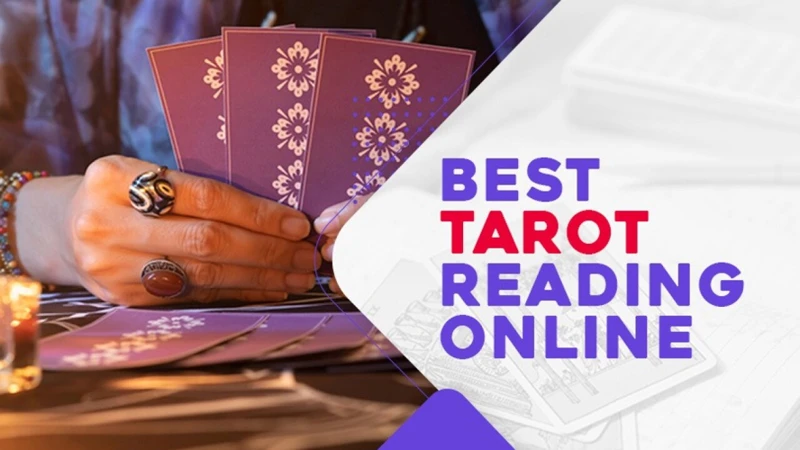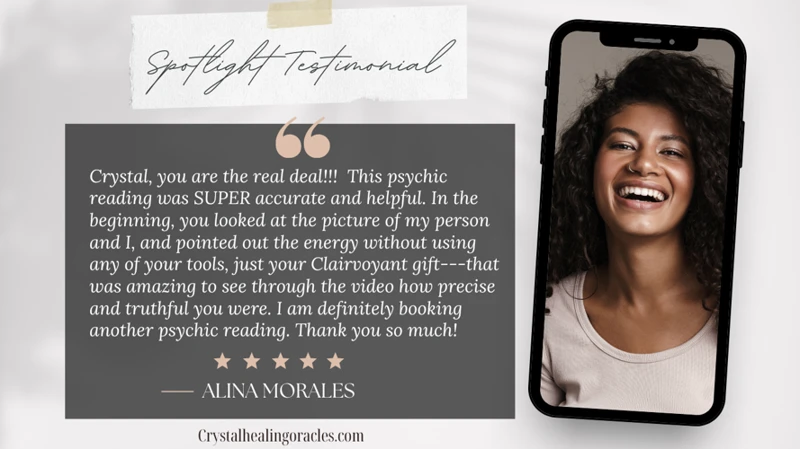Contents
Exploring the Significance of Testimonials When Evaluating a Psychic’s Credentials

When seeking the guidance of a psychic, it’s essential to evaluate their credentials to ensure authenticity and reliability. Psychic credentials play a crucial role in establishing their expertise and abilities. However, simply relying on credentials may not be sufficient. Testimonials from previous clients provide valuable insights into the psychic’s capabilities and the quality of their services. In this article, we will delve into the importance of testimonials and how they can help in assessing a psychic’s credibility. By understanding the role and value of testimonials, you will be equipped with the knowledge to make an informed decision when choosing a psychic for your needs.
Understanding Psychic Credentials

Credentials are an essential aspect when evaluating a psychic’s expertise and qualifications. It involves assessing their background, experience, and certifications to determine their credibility. Psychic credentials serve as evidence of a psychic’s knowledge and training in their field. They may include educational degrees, certifications, memberships in reputable organizations, and even years of experience. These credentials provide a foundation for establishing the psychic’s competence and can help differentiate between genuine professionals and individuals with limited abilities. To learn more about the qualifications required for psychics, you can refer to our comprehensive guide on qualifications for psychics. By understanding the role of experience in validating psychic credentials, you can ensure that you are engaging with a legitimate psychic professional. For tips on verifying and ensuring the legitimacy of psychic credentials, we have compiled a helpful article on verifying credentials for psychics.
What are Psychic Credentials?
Psychic credentials encompass a range of qualifications and attributes that authenticate a psychic’s abilities and expertise. These credentials provide clients with a sense of trust and confidence in the psychic they choose to consult. There are several types of psychic credentials that you should be aware of when evaluating a psychic’s qualifications. These include:
1. Education and Training: Many psychics undergo formal education and training programs to enhance their skills. These programs may cover a variety of subjects such as psychic development, intuitive abilities, energy healing, and divination techniques.
2. Certifications: Some psychics obtain certifications from reputable organizations or governing bodies in the psychic field. These certifications validate their knowledge and proficiency in specific areas of psychic practice.
3. Memberships: Membership in professional associations or organizations can demonstrate a psychic’s commitment to ethical practices and ongoing professional development. These memberships often require adherence to a specific code of conduct.
4. Experience: Psychic experience can be a valuable credential, as it indicates the psychic’s longevity in the field and their exposure to a wide array of situations and clients. Experience plays a crucial role in validating psychic credentials. To learn more about the role of experience in validating psychic credentials, you can refer to our informative guide on the role of experience in validating psychic credentials.
By understanding the various aspects that make up psychic credentials, you can better assess a psychic’s qualifications and select a reliable and trustworthy professional for your needs.
Why are Credentials Important?
Credentials hold significant importance when evaluating a psychic. They serve as a validation of the psychic’s knowledge, skills, and expertise. Here are some reasons why credentials are crucial in determining the credibility of a psychic:
1. Establishing Trust: Credentials provide a sense of trust and assurance to clients. It shows that the psychic has undergone formal training, acquired necessary knowledge, and is committed to upholding professional standards. This trust is vital when seeking guidance or advice from a psychic.
2. Ensuring Competence: Credentials indicate that a psychic has acquired the necessary skills and expertise in their field. The psychic’s qualifications and certifications demonstrate their mastery of psychic techniques, tools, and methodologies, making them more proficient in providing accurate and insightful readings.
3. Quality Assurance: Credentials serve as a measure of quality in psychic services. They indicate that the psychic has met certain standards and has undergone evaluations or assessments to ensure their abilities. Engaging with a credentialed psychic reduces the risk of encountering fraudsters or individuals with limited psychic abilities.
4. Professional Ethics: Credentials often come with codes of ethics and conduct that psychics are required to adhere to. This ensures that they provide services in an ethical and responsible manner, maintaining client confidentiality and respecting the boundaries of their practice.
It is important to note that credentials alone do not guarantee a psychic’s abilities or the accuracy of their readings. However, they provide a foundation for assessing the legitimacy and competence of a psychic, helping clients make informed decisions when seeking psychic guidance.
The Role of Testimonials

Testimonials play a critical role in evaluating the credibility and effectiveness of a psychic. Testimonials are feedback and reviews provided by previous clients who have experienced a psychic’s services. They offer valuable insights into the psychic’s abilities, accuracy, professionalism, and overall client satisfaction. Testimonials serve as social proof, allowing potential clients to gauge the psychic’s reputation and the quality of their readings. By reading testimonials, individuals can gain a better understanding of how a psychic has impacted the lives of others. They can provide reassurance and build trust, especially for those who are new to seeking psychic guidance. With testimonials, individuals can make informed decisions and choose a psychic whose abilities and approach align with their needs and expectations. Testimonials can offer different perspectives and highlight specific strengths or areas in which the psychic excels. This can help potential clients assess whether a particular psychic is the right fit for their specific questions or concerns. Testimonials serve as a powerful tool that allows individuals to evaluate a psychic’s credibility and make an informed decision about seeking their services.
What are Testimonials?
Testimonials are statements or reviews provided by previous clients who have experienced the services of a psychic. These testimonials serve as a form of feedback and personal recommendation from individuals who have sought guidance from the psychic. They offer insights into the psychic’s abilities, accuracy, professionalism, and overall satisfaction of the clients. Testimonials can come in various forms, including written reviews, ratings, audio recordings, or video testimonials. They provide potential clients with a glimpse into the psychic’s track record and the experiences of others who have consulted them. Testimonials can be found on the psychic’s website, social media platforms, or other online review platforms. They are a valuable resource for individuals seeking a reputable psychic as they provide real-life experiences and opinions.
Benefits of Testimonials
Testimonials play a crucial role in evaluating a psychic’s credentials and can provide several benefits. Firstly, testimonials act as social proof, offering reassurance to potential clients that the psychic has a track record of delivering accurate and insightful readings. They serve as evidence that others have had positive experiences with the psychic and can help build trust and confidence. Secondly, testimonials provide valuable insight into the specific strengths and abilities of the psychic. Previous clients may highlight the psychic’s accuracy in predicting future events, their empathetic and compassionate nature, their ability to provide guidance and clarity, or any other aspects that stood out during their reading. This helps potential clients gauge whether the psychic’s expertise aligns with their own needs and expectations. Additionally, testimonials can also provide information on the overall professionalism, responsiveness, and reliability of the psychic. Whether it’s prompt communication, timely delivery of readings, or respectful and ethical conduct, testimonials can shed light on these crucial factors. Testimonials serve as a powerful tool in understanding the experiences of others and assessing the value and credibility of a psychic.
Types of Testimonials
When evaluating a psychic’s credentials, it is important to consider the different types of testimonials that can provide valuable insights. Testimonials can come in various forms, each offering a unique perspective on the psychic’s abilities and services. One type of testimonial is the written testimonial, where previous clients share their experiences and satisfaction in written formats such as reviews or testimonials on the psychic’s website. These written testimonials allow potential clients to gain a better understanding of the psychic’s accuracy, professionalism, and ability to provide guidance. Another type of testimonial is the audio or video testimonial, where clients share their experiences through recorded messages or videos. These testimonials provide a more personal touch, allowing potential clients to observe the client’s emotions and expressions while sharing their feedback. Additionally, there are also case studies or success stories shared by clients, highlighting specific instances where the psychic’s guidance led to positive outcomes. These types of testimonials can provide evidence of a psychic’s effectiveness in real-life situations. By considering the different types of testimonials available, individuals can gather a comprehensive understanding of a psychic’s track record and determine if they are the right fit for their needs.
Evaluating the Credibility of Testimonials

When evaluating the credibility of testimonials, there are several factors to consider. Considering the source is crucial because the reliability of the testimonial depends on the credibility of the person providing it. Look for testimonials from reputable sources, such as well-known websites or individuals with a strong online presence. Specific details within testimonials also play a significant role in establishing their authenticity. Genuine testimonials often include specific experiences, details, or results that the client has experienced during their psychic reading. These specific details show that the testimonial is based on a real experience rather than generic praise.
Comparing multiple testimonials is another important step in evaluating their credibility. By examining various testimonials, you can look for consistencies and patterns in the feedback provided. If multiple people share similar positive experiences, it adds to the credibility of the psychic. On the other hand, if there are discrepancies or contradictory information, it may raise red flags about the authenticity of the testimonials.
To further ensure the authenticity of testimonials, legitimate psychics often provide authenticity assurances. These assurances can include using legitimate client names (with permission), verifiable contact information, or even video testimonials. These additional measures help build trust and credibility around the testimonials. By following these evaluation techniques, you can determine the credibility and reliability of testimonials when assessing a psychic’s credentials.
Consider the Source
When evaluating testimonials, it is crucial to consider the source from which they come. Not all sources are equally reliable or trustworthy. Considering the source means assessing the credibility and reputation of the person or organization providing the testimonial. Look for testimonials from reputable websites, forums, or platforms dedicated to psychic services. Verified customer reviews from trusted sources carry more weight than anonymous or unverified testimonials. Additionally, testimonials from individuals who have a history of providing genuine and insightful feedback can be more valuable. It’s also essential to consider if there are any potential biases or conflicts of interest that could affect the credibility of the source. By thoroughly considering the source of a testimonial, you can gain a better understanding of its reliability and make more informed decisions when evaluating a psychic’s credentials.
Look for Specific Details
When evaluating the credibility of testimonials, looking for specific details is crucial. Generic or vague testimonials may not provide enough information to assess the psychic’s abilities accurately. Pay attention to testimonials that mention specific details about the psychic’s predictions, advice, or guidance. Specifics, such as accurate dates, names, or specific events, help validate the testimonial’s authenticity. Look for testimonials that describe how the psychic’s insights have positively impacted the individual’s life or helped them navigate challenging situations. Additionally, testimonials that highlight the psychic’s empathetic nature, compassionate approach, or ability to provide clarity can be valuable indicators of their expertise. To make it easier to compare and analyze testimonials, you can create a checklist or use a table to list the specific details mentioned in each testimonial. This will help you identify patterns or consistencies among the testimonials and make a more informed decision about the psychic’s credibility.
Compare Multiple Testimonials
When evaluating a psychic’s credentials, it is crucial to compare multiple testimonials. Testimonials provide valuable insights into the psychic’s abilities and the quality of their services. By examining different testimonials, you can gain a better understanding of the consistency and reliability of their readings. Look for patterns and recurring themes in the testimonials, as this indicates the psychic’s expertise in addressing specific areas or offering specific types of readings. Additionally, comparing testimonials allows you to assess the overall satisfaction of clients and determine if the psychic consistently delivers accurate and meaningful readings. It’s essential to consider both positive and negative testimonials to get a well-rounded perspective. However, be cautious of overly exaggerated claims or excessively negative reviews as they may be outliers. By carefully comparing multiple testimonials, you can gather a comprehensive view of the psychic’s reputation and make a more informed decision about their credibility and suitability for your needs.
Authenticity Assurance
When evaluating the credibility of testimonials, it’s essential to consider authenticity. This ensures that the testimonials are genuine and not fabricated. Here are some ways to assess the authenticity of testimonials:
1. Look for consistent themes: Pay attention to recurring themes or patterns in the testimonials. Genuine testimonials are likely to mention similar aspects of the psychic’s abilities, accuracy, or the impact of their readings. If multiple testimonials highlight the same strengths or experiences, it adds credibility to their authenticity.
2. Check for diverse perspectives: Authentic testimonials come from a variety of sources and perspectives. Look for testimonials from different individuals who have sought the services of the psychic. This diversity adds credibility and indicates that the psychic’s abilities are acknowledged and appreciated by a wider range of clients.
3. Consider the language used: Authentic testimonials often contain details and specific language that reflect a genuine experience. Look for testimonials that provide specific examples, such as accurate predictions, meaningful insights, or personal connections established during the reading. These specific details indicate that the testimonial is based on a real experience rather than generic praise.
4. Verify consistency with the psychic’s style: If you have the opportunity to explore the psychic’s website, social media, or any other platform where they showcase their work, compare the testimonials with the style and approach they advertise. Authentic testimonials will align with the psychic’s stated expertise and methods.
5. Consider third-party reviews: Look for testimonials posted on reputable websites or review platforms. Third-party reviews are often subject to moderation or verification, which adds an extra layer of credibility. Genuine testimonials published on such platforms are less likely to be manipulated or biased.
By evaluating testimonials for authenticity, you can gain confidence in the psychic’s abilities and make a more informed decision when seeking their services. Remember to consider these factors while assessing the validity of testimonials and validating a psychic’s credentials.
Examples of Valuable Testimonials

Testimonials are a powerful tool for evaluating a psychic’s credibility. They provide real-life experiences from previous clients, highlighting the effectiveness and accuracy of the psychic’s readings. When looking for valuable testimonials, certain factors can help determine their significance. First, testimonials that include specific details about the reading, such as accurate predictions, personal insights, or emotional impact, hold greater value. These specific details demonstrate the psychic’s ability to provide meaningful and accurate guidance. Second, testimonials from reputable sources, such as well-known individuals or established organizations, carry more weight. These sources provide an extra layer of credibility and indicate that the psychic’s services have been valued by respected individuals. Additionally, testimonials that come from clients who have had multiple sessions over an extended period can demonstrate consistency and the psychic’s long-term effectiveness. Lastly, testimonials that address the psychic’s professionalism, empathy, and ability to create a comfortable environment for the client can be indicative of a positive overall experience. These factors collectively contribute to the credibility and value of testimonials in assessing a psychic’s abilities.
Real-Life Experiences
Testimonials based on real-life experiences hold immense value when evaluating a psychic’s credibility. These testimonials provide firsthand accounts from clients who have sought a psychic’s guidance and can offer valuable insights into their abilities. Real-life experiences shared through testimonials can give potential clients a glimpse into what to expect during a reading with a particular psychic. They may include details about the accuracy of predictions, the connection experienced with the psychic, and the overall satisfaction with the reading. Analyzing these testimonials can help you gauge the consistency and effectiveness of a psychic’s abilities, allowing you to make an informed decision on whether to engage their services. Additionally, testimonials can provide reassurance and build trust, as they are based on genuine experiences shared by others who have already benefited from the psychic’s guidance.
Case Study: Testimonial Analysis
To understand the significance of testimonials when evaluating a psychic’s credentials, let’s consider a case study. Imagine you are searching for a reputable psychic and come across a few testimonials on their website. As part of your analysis, you examine these testimonials carefully. One testimonial stands out, praising the psychic for their accurate predictions and insightful guidance. The client even mentions specific details about their experience, such as the psychic accurately describing a recent life event. This testimonial provides valuable evidence of the psychic’s abilities and their potential to provide meaningful and accurate readings. Another testimonial, however, is more generic and lacks specific details, making it less impactful. This case study demonstrates the importance of thoroughly evaluating testimonials. Look for testimonials that are detailed, mention specific experiences or predictions, and come from credible sources. By doing so, you can gain deeper insights into a psychic’s expertise and make an informed decision when choosing a psychic for your needs.
Conclusion
In conclusion, when evaluating a psychic’s credentials, testimonials play a significant role in determining their credibility and authenticity. Testimonials offer firsthand accounts of clients’ experiences with the psychic, providing valuable insights into their abilities, accuracy, and professionalism. By considering the source of testimonials, looking for specific details, comparing multiple testimonials, and ensuring authenticity, you can gain a more comprehensive understanding of the psychic’s capabilities. These testimonials can serve as a valuable tool in guiding your decision-making process when choosing a psychic for your needs. Remember, testimonials are not just mere endorsements but rather a way to gauge the psychic’s ability to provide accurate and valuable insights. By taking the time to analyze and evaluate testimonials, you can make a more informed decision and have a more fulfilling psychic experience.
Frequently Asked Questions
FAQs About Understanding Psychic Credentials
1. What are the most common types of psychic credentials?
Psychic credentials can vary, but some common types include certifications from reputable organizations, memberships in professional psychic associations, and completion of formal training programs.
2. Can anyone claim to be a psychic without credentials?
Yes, anyone can claim to be a psychic without having official credentials. However, credentials help establish their credibility and expertise in the field.
3. How can I verify a psychic’s credentials?
To verify a psychic’s credentials, you can check if they have received certifications from reputable organizations, ask for references from satisfied clients, and research their background and experience.
4. Are psychic credentials legally recognized?
Psychic credentials are not legally recognized in most jurisdictions. However, they serve as a measure of a psychic’s training, expertise, and commitment to the profession.
5. Is experience more important than credentials when choosing a psychic?
Both experience and credentials are important when choosing a psychic. Experience provides practical knowledge, while credentials demonstrate formal training and dedication to the field.
6. Can psychics without credentials be trusted?
Psychics without credentials can still be trusted if they have a solid reputation, positive client testimonials, and a track record of accurate readings. It’s important to consider various factors when evaluating a psychic’s credibility.
7. Are psychic credentials transferable between different psychic practices?
The transferability of psychic credentials may vary. Some credentials may be specific to certain psychic practices, while others may be more broadly recognized within the industry.
8. Do all psychics need certifications to be considered legitimate?
Not all psychics need certifications to be considered legitimate. However, certifications can provide clients with an added assurance of a psychic’s knowledge, skills, and professionalism.
9. What other factors should I consider besides credentials when choosing a psychic?
In addition to credentials, other factors to consider when choosing a psychic include testimonials from previous clients, personal recommendations, the psychic’s specialty, and your own intuition and comfort level.
10. Can psychics with credentials guarantee accurate readings?
While psychic credentials can indicate a certain level of expertise, it does not guarantee 100% accurate readings. Psychic abilities can vary, and the accuracy of a reading can depend on various factors, including the energy of the client and the specific circumstances.







